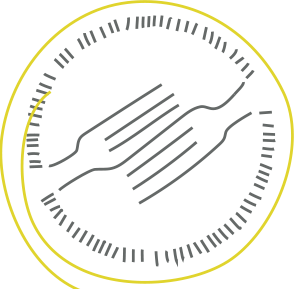The Balding Boy
At the young age of 2 ½ my son Hunter was diagnosed with Alopecia areata, an autoimmune disease that causes a person’s hair to fall out. He had a stomach virus one day and the next my husband and I noticed patches of hair loss on his small blonde head. With balding child in tow, our first stop was the family doctor who referred us to a pediatric dermatologist where we received the upsetting diagnosis. Our directive: Apply cortisone cream (a steroid) to the balding areas over the course of the next month and let’s see if the hair starts to grow back.
Cortisone is used to decrease inflammation and Hunter’s tiny hair follicles were inflamed (the “reason” his hair was falling out). We unwillingly followed course for one month and while there was some hair growth in the areas where the cream was applied (a sign of hope), hair was still falling out on other parts of his noggin. Peeps on the street were starting to stare (and our hearts were aching) so my husband and I opted to shave his head—a bald kid seemed better than one with a patchy dome.
Typically taking the medical lead in our family, I reached out to my trusted colleagues (as opposed to the specialists we were seeing) during this initial month to discuss alternative measures of treatment. I suspected that there was far more that I could do—if there is one thing I know, it’s that certain foods can promote inflammation. And for anyone with autoimmune concerns, gluten can often be a big time trigger. Surely Hunter ate his share of foods with gluten including breads, pasta and some sweet treats.
I called the doc, requested blood tests to determine if my boy was sensitive to gluten or even had celiac disease (there is an association, albeit small, between alopecia and celiac) and scheduled an intestinal biopsy to offer the "ultimate" confirmation. Not fun stuff but I needed to heal my child!
While the blood tests showed a slight sensitivity to gluten, the biopsy was negative so the conventionally trained “clowns” that I was seeing told me to continue with the cream, keep him on gluten for a year then bring him back for more testing—perhaps the cause for his hair loss will be more evident with time. Or perhaps if I continue to add insult to injury, my kid will get really sick—seriously, WTF! But I knew better than that…
On May 17, 2010 Hunter went off gluten and his hair starting growing back. By the fall he had white fuzz—and looked like a baby chick. And today, he has a full head of gorgeous blonde hair.
At a medical conference last year, I ran into my friend, colleague and integrative pediatrician Dr. Stephen Cowan who was instrumental in offering guidance throughout Hunter’s “illness”. He hadn’t seen my little one in a while. I showed him a before picture (as seen above) and a now picture (below). My words exactly, “Can you believe this kid has alopecia areata? And he has a full head of hair!” His response, “Stefanie, he doesn’t have alopecia. He has a propensity for it. You made him a well-child.” Point taken!
Bottom line, everyone has the propensity for illness but it is what you do about it (if the curve ball hits) that can determine your future. So my point is this—food plays a critical role in the body’s ability to prevent illness and heal from it. Hunter is testament to this. With autoimmune disease or any other dysfunction for that matter, consider that food can help heal. And seek a healthcare provider that is willing to have a conversation about the power and place of eats in your picture.
Let’s keep this conversation going. Please feel free to ask questions or share your thoughts and opinions. I would love to hear from you!


